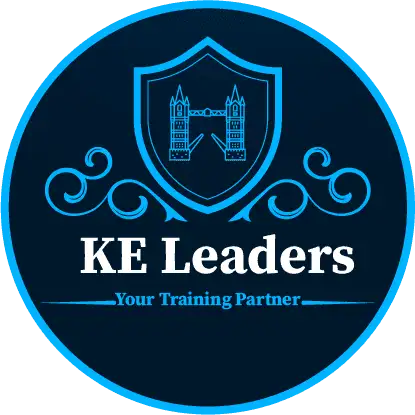Creating a Local Content Matrix to Attain SDGs, ESG Goals, and Enhance In-Country Value Retention
Introduction
This training course on **Implementing a Local Content Matrix to Achieve SDGs, ESG, and In-Country Value Retention** will begin with an examination of the Sustainable Development Goals (SDGs) and the evolving global perspectives on energy following COP26. As the push for an energy transition away from hydrocarbons gains momentum, we will analyze the associated opportunities and challenges within the industry. Additionally, we will delve into the UNDP’s Atlas, which aligns the Oil & Gas sector with the SDGs, highlighting examples of best practices. Participants will work towards developing a matrix that integrates ESG, SDG, and in-country value through a comprehensive review of strategies and objectives.
Throughout the course, we will address supply and demand dynamics, including the implications of reduced efficiencies and increased production costs, and their effects on investment and growth prospects across the continent. Achieving the SDGs demands collaboration, integration, and partnership. Given the scale of these global challenges, prioritizing stakeholder engagement and identifying effective strategies to address them will be key components of the program.
This **GLOMACS training course** will cover:
– An overview of the broader energy transition goals following COP26.
– Analysis of African oil production in relation to hydrocarbon resilience and economic dependence on fossil fuels.
– Mapping local content strategies to sustainable development objectives.
– Creating a matrix that links ESG and SDGs to enhance in-country value.
– Understanding the importance of stakeholder engagement, both internal and external.
Objectives
By the end of this training course, participants will:
– Gain a comprehensive understanding of the African oil and gas industry concerning the SDGs.
– Develop insights into existing commitments to the energy transition and Africa’s positioning.
– Understand the various ways the oil and gas industry contributes to the SDGs.
– Explore different strategies to adapt existing practices to incorporate SDG objectives.
– Recognize the critical role of stakeholders in facilitating change.
Training Methodology
This course will employ a range of dynamic and interactive training methods, balancing conventional instruction with practical case studies. Participants will engage in activities designed to provide them with knowledge and strategies for integrating SDGs into their business practices.
Organizational Impact
By sending delegates to this course, organizations will benefit from:
– A detailed understanding of current opportunities and challenges facing the African oil and gas industry.
– Guidance on incorporating SDGs into business strategies and objectives.
– Learning from case studies of effective practices.
– Strategies for overcoming obstacles in achieving the SDGs.
– Insights into the importance of collaboration with stakeholders.
Personal Impact
Attendees will gain:
– In-depth knowledge of the African oil and gas sector in the context of the global energy transition.
– A solid understanding of the UNDP’s Sustainable Development Goals.
– Awareness of the challenges and opportunities associated with supporting the energy transition.
– Recognition of the need for effective communication and stakeholder buy-in to drive change.
– Increased confidence in participating in discussions on energy transition and SDG achievement.
Who Should Attend?
This training course is aimed at experienced professionals in the oil and gas industry seeking to enhance their understanding of how the sector can contribute to achieving the SDGs. It is particularly beneficial for:
– Local content professionals
– Local content managers
– Social performance specialists
– Employees poised for career advancement
– Functional experts supporting business objectives
Course Outline
Day 1: Oil & Gas Industry in Transition: Africa’s Status
– Overview of global energy markets
– Summary of COP26 outcomes
– Energy outlook: Implications for oil and gas supply/demand
– OPEC world outlook
– The future landscape of African oil and gas
Day 2: Mapping Oil & Gas Industry to SDGs
– Introduction to the 17 Sustainable Development Goals
– Overview of the UNDP Atlas
– Examining the oil and gas industry’s impact on the SDGs
– Identifying key stakeholders for coordinated responses
– Opportunities and threats to the industry
– Prioritizing relevant SDGs for your operations
Day 3: Aligning Local Content Strategies to Meet ESG and Deliver SDGs
– Evaluating how existing local content strategies address ESG
– Identifying currently met SDGs
– Determining stakeholders necessary for sustainable strategies
– Crafting communication plans to enhance stakeholder relationships
– Updating local content strategies to achieve ESG and maximize SDG delivery
Day 4: Developing Local Content Strategies to Deliver an SDG Roadmap
– Understanding regional industry dynamics and sustainability maturity
– Reviewing local content strategies through the ESG and SDG lens
– Operationalizing SDGs through corporate systems and policies
– Ensuring local content strategies sustain in-country value
– Creating a matrix that links ESG, SDG, and in-country value
Day 5: Gaining Buy-In to Deliver SDG Goals
– Engaging employees and local communities
– Enhancing educational opportunities
– Stakeholder engagement (e.g., developing a water strategy)
– Highlighting positive impacts of the oil and gas industry on the SDGs
– Future prospects for the African oil and gas sector






